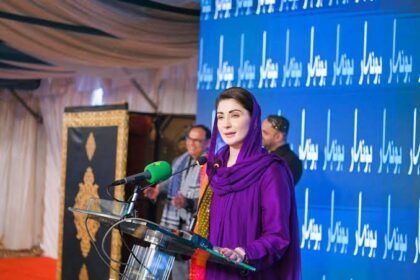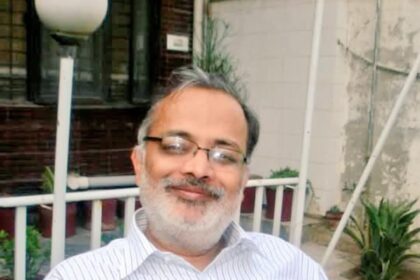Former Pakistani prime minister the late Benazir Bhutto once said in a speech that democracy needs support and the best support for democracy comes from other democracies. However, democracies all over the world face threats, often in the form of unexpected coups mostly staged by the military dictators. This has been happening for decades that democracies are overthrown by individuals having an authoritarian mindset. Such coups only result in the violations of basic human rights and the masses pay the price for such an adventurism. On the other hand, democratic norms are valued because they empower citizens to elect their representatives for resolving their day-to-day social issues. Quite lately, the awakening of public concern about strengthening democracy is taking roots worldwide. Now, it’s not easy for any dictator or plotter to overthrow a democratic regime. Now people resist such adversaries of democracy through their unity. The foiling of an alleged plot to overthrow the Ukraine government and the arrest of Bolivian military general are recent examples of the checkered history, where the masses stood against the violators of constitution of their respective states. Pakistan is no stranger to such incidents that had happened in the past due to the civilian-military divide. The episodes of this disagreement have resulted in serious damage to the democratic norms in the country. This perplexed political anarchy has also put a question mark on the role of powerful institutions, which remains debatable. Arguably, a consensus must be built that there should be no overstepping the constitutional limit by any institution. The main pillars of a democratic set-up comprise establishment, executive, legislature and the judiciary and all are interdependent for the dissemination of justice and ensuring rule of law in the country. Besides they maintain balance and their existence helps deter excesses by any other institution.
Every institution needs to be cautious regarding infringement of other’s rights and in the whole process the sole focus should be on the supremacy of law. These are rules and if any one who transgresses should be severely punished. Bigger roles entail bigger responsibilities and the same rule applies on individuals and institutions enjoying vast powers. They need to tread cautiously while playing their constitutional role. All institutions need to take stock of their working and rectify itself before any other institution point fingers at their performance. All institutions need to be careful regarding the domain of each other. Any indifference or clash of opinion can result into a big crisis that can lead to anarchy in the country. Everyone is equal and all affairs of the state need to be regulated as per law enshrined in the constitution. No one should give such an impression that democracy is under threat in the country and all stakeholders need to work for strengthening a democratic set-up. So far, Pakistan has an eventful history marked by a power struggle between civilians and military rulers as well as covert role of bureaucracy taking charge of the situations while following the proverb: might is right. In fact the democratic system in Pakistan was hijacked time and again by the vested interests for their ulterior motives. Democratic norms have failed to flourish in this part of the world owing to the involvement of certain elements and institutions. Parliamentary politics could not take roots since day one of the creation of Pakistan as the dearth of leadership having complete belief in democratic principle was the real crisis and unfortunately this chasm has not been filled yet. Pakistan started its journey as a parliamentary democracy in 1947 that marked the end of British raj in the Indian subcontinent. It was also the materialization of a cherished dream that finally we could practice democratic norms in a true sense as a free nation. However, the realization of this dream is still incomplete due to unstable democracy, which is marked by military coups, abrogation of constitution and persecution of elected prime ministers.
Instead of relying on dreams, hopes and promises, Pakistan’s politics needs a thorough review as it can no more afford past adventurism. In the past, the country’s constitution was revoked in 1958 and 1969. It also remained suspended in 1977, 1999 and 2007. So far, five elected governments have been removed by the establishment. Zulfikar Ali Bhutto, the founder of a mainstream political party, was executed through judicial order. Former prime ministers Nawaz Sharif and Benazir Bhutto were exiled. Nawaz Sharif was disqualified in the Panama Papers case by the Supreme Court. In fact, Nawaz Sharif faced the wrath of establishment twice. Currently, former prime minister Imran Khan has been facing jail for his alleged involvement in the anti-establishment agenda. This capsule view of the origins of Pakistan’s democracy underlines the trajectory taken by the state and subsequent results that have prompted a few scholars to advocate the establishment of a tailored democracy for Pakistan. In such a democracy, voting rights are limited to a certain faction in the society and the rest of the citizens are considered inferior. During all these years, a comprehensive list of lessons has been compiled for taking necessary actions to close the chapter of direct and indirect coups once and for all. The end of every dictatorial regime demanded certain measures to empower the parliament. Time has come that politicians introspect past experiences and create unity in their ranks against the infringement of democracy. Pakistan’s survival is dependent on the practice of an inclusive democracy based on the rights of equality for all citizens, its federating units, and a guarantee of justice and equity. Let us all work for flourishing democracy in Pakistan.






